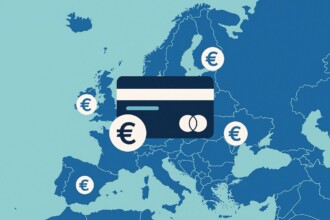In today’s fast-paced world, financial emergencies can strike at any moment. Whether it’s an unexpected medical bill, car repair, or urgent home maintenance, the need for quick cash is a reality many Americans face. This is where instant loans come into play, offering a lifeline when traditional lending options may fall short. While some may turn to alternative forms of entertainment like plinko app for a chance at quick winnings, instant loans provide a more reliable solution for those in need of immediate funds.

What Are Instant Loans?
Instant loans, also known as payday loans or cash advances, are short-term borrowing options designed to provide quick access to small amounts of money. These loans are typically unsecured, meaning they don’t require collateral, and are meant to be repaid within a short period, usually by the borrower’s next payday.
How Instant Loans Work in the USA
The process of obtaining an instant loan in the United States is relatively straightforward:
- Application: Borrowers can apply online or in-person at a lender’s storefront.
- Approval: Lenders review the application and make a quick decision, often within minutes.
- Funding: If approved, funds are typically deposited into the borrower’s bank account within one business day.
- Repayment: The loan is usually due on the borrower’s next payday, with the full amount plus fees automatically withdrawn from their account.
Advantages of Instant Loans
Instant loans offer several benefits that make them attractive to borrowers facing financial emergencies:
- Speed: The most significant advantage is the rapid access to funds. Unlike traditional loans that may take days or weeks to process, instant loans can provide money within hours.
- Accessibility: These loans are often available to those with poor credit or no credit history, making them an option for individuals who may not qualify for conventional loans.
- Convenience: The application process is typically simple and can be completed online, eliminating the need for in-person visits to banks or lengthy paperwork.
- No collateral required: Most instant loans are unsecured, meaning borrowers don’t need to put up valuable assets as collateral.
- Flexible use: There are usually no restrictions on how the borrowed funds can be used, giving borrowers freedom to address their specific financial needs.
Disadvantages of Instant Loans
While instant loans can provide quick relief, they come with significant drawbacks that borrowers should carefully consider:
- High interest rates: The most notable disadvantage is the extremely high interest rates, often reaching triple-digit APRs.
- Short repayment terms: The short repayment period can make it difficult for borrowers to repay the loan, potentially leading to a cycle of debt.
- Potential for predatory lending: Some lenders may engage in unethical practices, taking advantage of borrowers in desperate situations.
- Impact on credit score: Late payments or defaults on instant loans can severely damage a borrower’s credit score.
- Fees and penalties: Many instant loans come with additional fees for processing, late payments, or rollovers, which can quickly add up.
Alternatives to Instant Loans
Given the high costs associated with instant loans, it’s worth exploring alternatives:
- Credit union loans: Credit unions often offer small, short-term loans at more reasonable rates compared to payday lenders.
- Personal loans: Traditional banks and online lenders may offer personal loans with lower interest rates for those with good credit.
- Credit card cash advances: While still expensive, credit card cash advances typically have lower interest rates than instant loans.
- Employer advances: Some employers offer paycheck advances as an employee benefit.
- Negotiating with creditors: In some cases, creditors may be willing to extend payment deadlines or create payment plans.
Regulations and Consumer Protections
The instant loan industry in the USA is regulated at both the federal and state levels. The Consumer Financial Protection Bureau (CFPB) oversees payday lenders at the federal level, while individual states have their own laws governing instant loan practices.
Some key regulations include:
- Caps on interest rates and fees
- Limits on loan amounts
- Restrictions on the number of rollovers or extensions
- Cooling-off periods between loans
- Mandatory disclosure of loan terms and costs
Making an Informed Decision
If you’re considering an instant loan, it’s crucial to:
- Understand the full cost of the loan, including all fees and interest.
- Read the loan agreement carefully before signing.
- Borrow only what you can afford to repay.
- Consider alternatives and explore all options before committing to an instant loan.
- Check the lender’s credentials and ensure they are licensed to operate in your state.
Conclusion
Instant loans can provide a quick solution to short-term financial needs, but they come with significant risks and costs. While they may be appropriate in certain emergency situations, it’s essential to approach them with caution and fully understand the terms and potential consequences. For many borrowers, exploring alternatives or seeking financial counseling may be a more prudent course of action.
As the financial landscape continues to evolve, responsible borrowing and lending practices remain crucial for maintaining financial health. Whether you’re facing an unexpected expense or looking for ways to improve your financial situation, it’s always wise to educate yourself on the available options and make decisions that align with your long-term financial goals.
For those seeking additional information on personal finance and loan options, the Consumer Financial Protection Bureau offers valuable resources and guidance to help navigate the complex world of borrowing.









